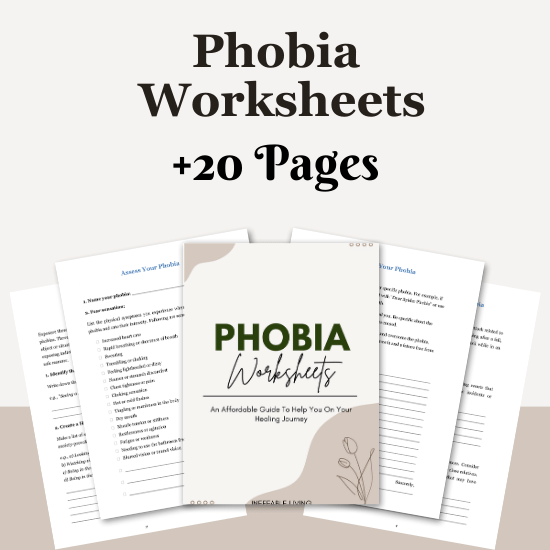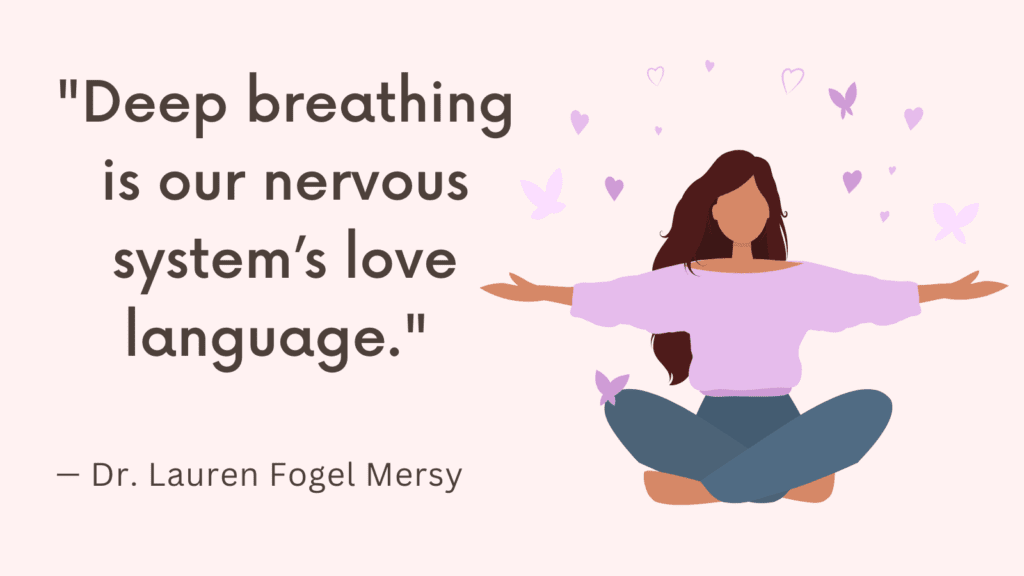In this post, you’re going to learn all about Koinophobia – the fear of being ordinary.
What Is Koinophobia?
Koinophobia, derived from the Greek word “koinos” meaning common or ordinary, is a term used to describe the fear of being or becoming ordinary.
Individuals experiencing koinophobia may harbor intense anxiety or distress related to the perceived lack of uniqueness, exceptionalism, or distinction in their lives and accomplishments.
This fear often intertwines with concerns about societal expectations, comparison to others, and a deep-seated desire for validation, recognition, and significance.
Sings of Koinophobia
Signs of koinophobia, the fear of being ordinary, may manifest in various ways, impacting an individual’s thoughts, emotions, and behaviors. Some common signs or symptoms of koinophobia include:
1. Relentless Pursuit of Extraordinary Achievements: Individuals experiencing koinophobia may engage in ceaseless efforts to attain exceptional accomplishments or experiences, driven by a deep-seated fear of being perceived as ordinary.
2. Perfectionistic Tendencies: A strong emphasis on flawlessness and an aversion to making mistakes or falling short of high standards may be indicative of koinophobia, as individuals strive to distance themselves from any semblance of averageness.
3. Chronic Dissatisfaction: Despite external recognition or successes, individuals with koinophobia may experience persistent feelings of inadequacy, dissatisfaction, or emptiness, believing that their achievements are not remarkable enough.
4. Comparisons and Envy: Constantly comparing oneself to others who are perceived as extraordinary and experiencing envy towards their accomplishments may indicate underlying koinophobic fears of being ordinary in comparison.
5. Intense Anxiety or Distress: The fear of lacking distinction or standing out may lead to heightened levels of anxiety, distress, or even panic when confronted with situations or circumstances that evoke feelings of ordinariness.
6. Avoidance of Routine or Mundane Activities: An aversion to routine or mundane activities and a preference for exclusively engaging in pursuits perceived as exceptional or unique can be a behavioral indicator of koinophobia.
7. Low Self-Worth Based on Accomplishments: Tying one’s self-worth solely to extraordinary achievements and experiencing diminished self-esteem when not reaching perceived exceptional standards may point to underlying koinophobia.
8. Fear of Being Forgotten or Insignificant: A pervasive fear of being forgotten, overlooked, or labeled as unremarkable, both in the present and after one’s passing, can be a prominent concern for individuals with koinophobia.
9. Pursuit of External Validation: Seeking constant validation, admiration, or attention from others as a means of mitigating the fear of ordinariness may reflect koinophobic tendencies.
10. Anxiety About Failing to Stand Out: Experiencing intense anxiety or distress at the prospect of not achieving something extraordinary or feeling average, regardless of the context or domain of accomplishment.
Related: Letting Go of Perfectionism: Best 20 Tips
How to Overcome Koinophobia – the Fear of Being Ordinary?
1. Challenge Perfectionism:
Koinophobia often intersects with perfectionistic tendencies, leading individuals to fear that they are not achieving an exceptional or extraordinary status in their endeavors.
By challenging the notion of perfectionism and embracing the concept of “good enough,” individuals can alleviate the pressure to constantly strive for extraordinary achievements and recognize the value in their efforts and accomplishments, regardless of perceived extraordinariness.
2. Cultivate Self-Compassion:
Developing self-compassion involves treating oneself with kindness and understanding, especially in the face of perceived inadequacy or ordinariness.
Practicing self-compassion allows individuals to acknowledge their humanness, embrace their imperfections, and foster a sense of internal validation that is not contingent on external recognition or extraordinary achievements.
3. Explore Intrinsic Motivation:
Shifting the focus from external validation to intrinsic motivation can help individuals overcome koinophobia.
By identifying personal values, interests, and passions, individuals can derive satisfaction and fulfillment from engaging in activities that resonate with their authentic selves, irrespective of societal expectations or perceptions of extraordinariness.
Related: Best 38 Brené Brown Perfectionism Quotes
4. Reevaluate Success and Fulfillment:
Encouraging individuals to redefine success and fulfillment can aid in overcoming koinophobia.
Emphasizing the multifaceted nature of success, which encompasses personal growth, meaningful relationships, and contributions to others, can broaden perspectives and diminish the singular focus on extraordinary achievements as the sole measure of worth.
5. Address Core Beliefs:
Exploring and challenging core beliefs about self-worth, adequacy, and the pursuit of extraordinariness is essential in overcoming koinophobia.
Beliefs related to koinophobia, the fear of being ordinary, often center around an individual’s perceptions of their own worth, significance, and place in the world.
Some common beliefs related to koinophobia include:
- The belief that one’s worth as a person is fundamentally tied to achieving extraordinary accomplishments, recognition, or distinctions, leading to a relentless pursuit of standing out from others.
- The belief that being ordinary equates to being insignificant, forgotten, or unimportant, generating anxiety and distress about not leaving a lasting impact or legacy.
- Using comparisons to others who are perceived as exceptional as a means of validating one’s own worth, and feeling inadequate or anxious when falling short in these comparisons.
- The belief that any hint of mediocrity or averageness is unacceptable, leading to perfectionistic tendencies and an inability to find satisfaction in one’s accomplishments.
Whenever you notice yourself thinking in absolutes or catastrophizing perceived averageness, consciously challenge these thoughts by asking for evidence and considering alternative interpretations.
Actively seek out examples of individuals who lead fulfilling lives without relying solely on extraordinary achievements.
Challenge rigid definitions of success and accomplishment by broadening your understanding of what it means to lead a meaningful life.
Embrace the idea that fulfillment can stem from a variety of sources, including relationships, personal growth, and contributing to the well-being of others.
Related: Negative Core Beliefs List (& 8 Tips On How To Challenge Them)
6. Embrace Vulnerability:
Embracing vulnerability involves acknowledging and accepting one’s inherent human vulnerabilities and imperfections.
By recognizing that being ordinary does not equate to weakness or failure, individuals can cultivate a sense of authenticity and connect more deeply with themselves and others, fostering resilience and self-acceptance.
7. Seek Authentic Connections:
Developing genuine connections with others who value authenticity and mutual support can counteract the fear of being ordinary.
Engaging in open and honest communication, sharing experiences of vulnerability, and building relationships based on acceptance and empathy can provide a sense of belonging and validation outside of extraordinary achievements.
8. Practice Mindfulness and Self-Awareness:
Cultivating mindfulness and self-awareness enables individuals to observe their thoughts and emotions without judgment, gaining insight into the underlying drivers of koinophobia.
Mindfulness practices, such as meditation and self-reflection, can help individuals detach from fears of ordinariness and develop a more grounded and present-centered perspective.
Related: Best 6 Mindfulness Exercises For Beginners (+FREE Resources)
9. Set Realistic Goals:
Encouraging individuals to set realistic and personally meaningful goals promotes a sense of accomplishment and progress, irrespective of whether these goals align with external standards of extraordinariness.
By focusing on incremental steps and personal growth, individuals can experience a sense of fulfillment and purpose that transcends the fear of being ordinary.

Conclusion
Overcoming koinophobia, the fear of being ordinary, involves a multifaceted and personalized approach that addresses ingrained beliefs, emotional responses, and behavioral patterns.
By challenging perfectionism, cultivating self-compassion, exploring intrinsic motivation, reevaluating success, addressing core beliefs, embracing vulnerability, seeking authentic connections, practicing mindfulness, and setting realistic goals individuals can gradually overcome this fear and cultivate a balanced and resilient sense of self-worth and fulfillment.
Remember that addressing koinophobia is a journey, and individuals are encouraged to seek support and practice self-compassion as they navigate through this process of growth and self-discovery.



